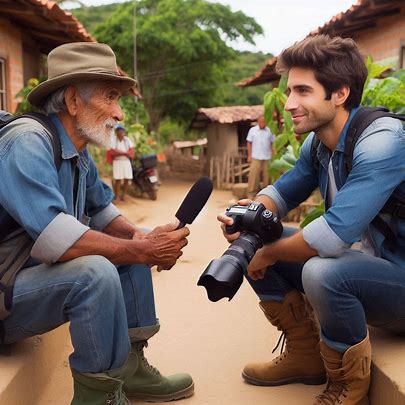Spanish is the second most spoken language in the world by native speakers, making it a vital tool for global communication. For journalists reporting from Latin America, understanding the language is not just a plus—it’s essential. To tell stories accurately, many international reporters are immersing themselves in Spanish programs across the region to strengthen both their linguistic skills and cultural understanding.
Countries like Costa Rica and Ecuador are now hotspots for language programs designed specifically for professionals. These natural immersion experiences go beyond vocabulary drills. They place journalists in local settings, where they interact with communities, attend events, and sometimes even live with host families. This method ensures that they not only learn the language but also grasp the context in which it’s spoken.
Bridging Cultural Gaps Through Language

When journalists can speak the language of the communities they cover, the tone of their reporting shifts. Instead of viewing stories from an outsider’s lens, they gain the ability to understand nuances, emotions, and subtleties that translation alone can’t convey. This leads to more accurate, sensitive, and compelling storytelling.
Take the example of a journalist covering environmental activism in Ecuador. Without understanding the local dialects or cultural traditions tied to the land, a report might miss key aspects of the community’s fight. However, with immersive language training, that same journalist can engage directly with residents, attend town hall meetings, and gather quotes and perspectives that reflect the full reality of the issue.
Why Costa Rica and Ecuador?
Both countries have strong reputations for hosting effective Spanish immersion programs. Costa Rica, known for its political stability and eco-tourism, is a safe and friendly destination for international learners. Meanwhile, Ecuador offers a unique combination of coastal, urban, and indigenous cultures, giving journalists a wide lens through which to understand the region.
Language schools in these countries often tailor their courses for professionals. That means flexible schedules, specialized vocabulary modules (such as political, legal, or medical Spanish), and real-world practice. Students frequently join community projects or internships, turning classrooms into lived experiences.
The Importance of Cultural Sensitivity in Reporting
Cross-cultural journalism isn’t just about speaking another language—it’s about respect, context, and responsibility. Misreporting or oversimplifying complex issues can harm the very communities journalists aim to amplify. The relationship between journalism and interpretation becomes especially important here, as reporters must navigate cultural cues and implied meanings. Language immersion is one of the fastest ways to develop this kind of awareness.
Consider coverage of indigenous protests or land rights in Latin America. A journalist who’s been part of the community, even briefly, and who has heard firsthand how people talk about these issues will have a clearer sense of what’s truly at stake. This not only strengthens the article but also builds trust between journalists and their sources.
Building Trust with Local Communities
Trust is everything in journalism. When communities see that a reporter is making the effort to learn their language and customs, it often leads to more open conversations. This can uncover angles that would otherwise go unnoticed. It also demonstrates a level of respect that goes a long way in societies that have often been misrepresented in foreign media.
Moreover, this connection can help journalists avoid common cultural pitfalls. For example, learning how to interpret body language or recognize what topics are considered taboo can drastically affect the tone and depth of an interview.
A Growing Movement Among Young Reporters
More journalism schools are encouraging students to pursue language immersion as part of their training. Scholarships, grants, and internship partnerships are making it easier for early-career reporters to study abroad. This trend points to a growing recognition that linguistic and cultural competency is not optional—it’s part of the job.
Journalism organizations, too, are taking notice. Newsrooms are hiring bilingual reporters and investing in language training for their staff. As stories become increasingly global, knowing how to speak with—rather than about—communities is becoming a must-have skill.
The Future of Global Journalism
As more journalists embrace immersion programs, the quality of international reporting is improving. Stories are becoming more authentic. Communities are better represented. And news consumers benefit from richer, more detailed narratives.
Spanish programs in Latin America are not just about grammar—they’re about breaking down barriers and building bridges. They are shaping a new generation of cross-cultural reporters who understand that the key to good journalism isn’t just what you say—it’s how well you listen.

